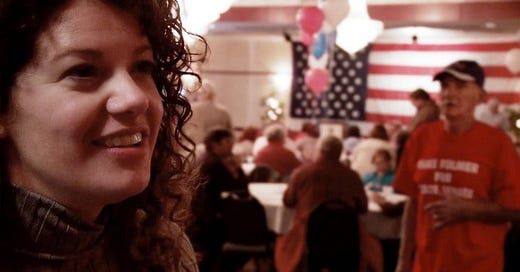‘Town Hall’ Review

The Tea Party is not in great shape these days. In the wake of last month’s government shutdown, national pollsters found that their unfavorable rating was the worst in their four-year history. In the always rushed world of politics, it seems as if their moment has passed. Yet good journalism isn’t rushed, and neither are good documentaries. Jamila Wign…
Keep reading with a 7-day free trial
Subscribe to Nonfics to keep reading this post and get 7 days of free access to the full post archives.



